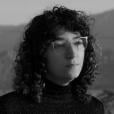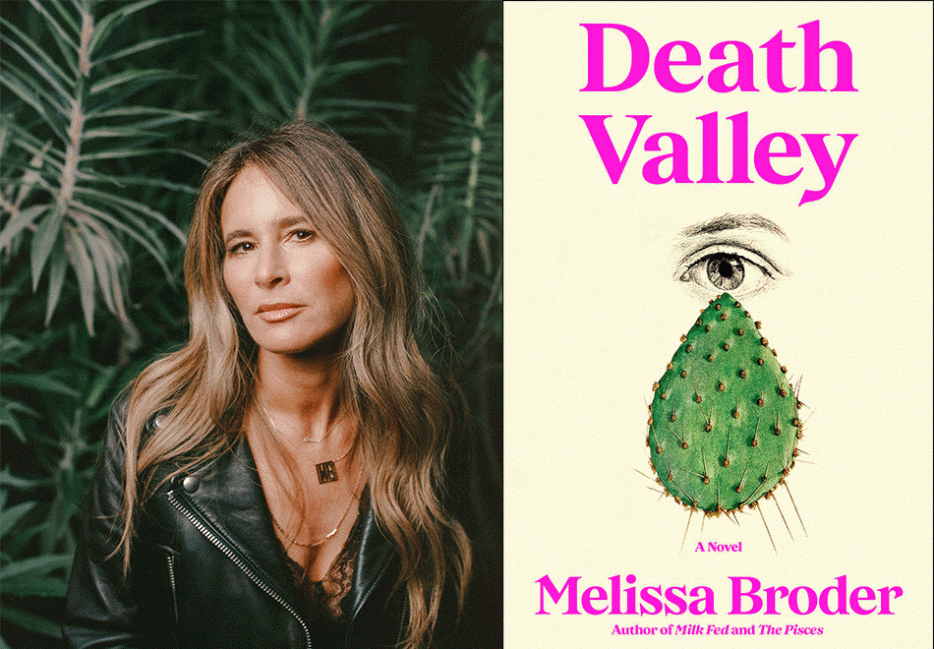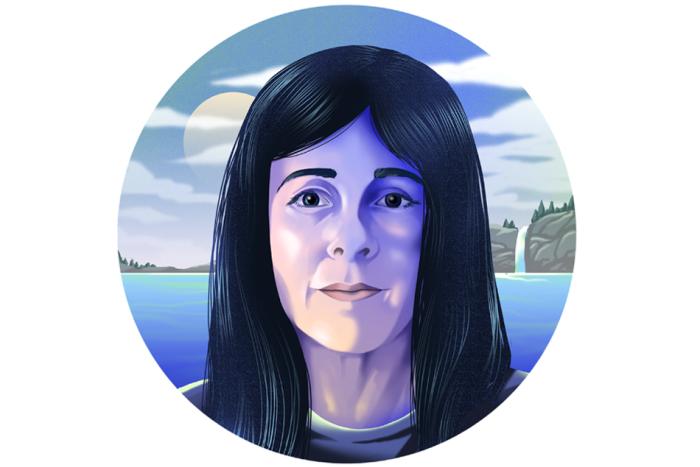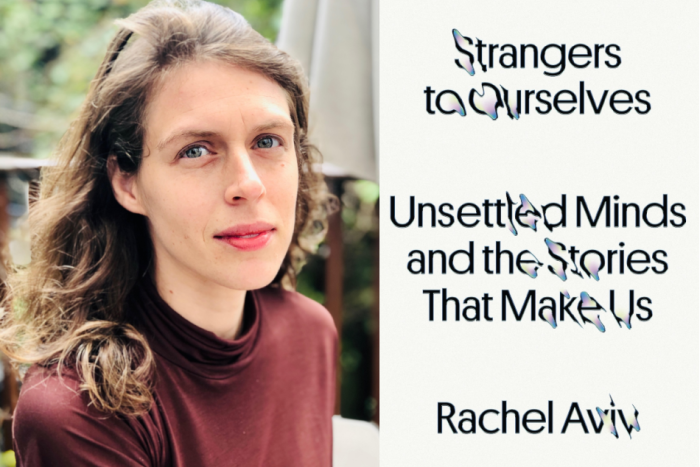In Melissa Broder’s newest novel Death Valley (Scribner), an unnamed protagonist hits the road in an attempt to escape from the stress of her hospitalized father’s imminent death. When she departs from her beloved Best Western hotel, Grab N’ Go Breakfast in hand, to take a brief walk in the desert, she’s surprised to see a giant, maybe mystical saguaro cactus. After finding her way inside it, she spirals into a journey through a hot, barren environment in which she’s forced to confront not only the harshness of nature, but her own grief, in order to survive.
As in Broder’s other novels, The Pisces and Milk Fed, the protagonist is emotionally complex, unfiltered, and gratingly self-aware; but, with the sparseness of Death Valley’s setting, she’s given more room to stretch herself out. As she struggles through the desert landscape, she leads the reader through the cyclical landscape of her mind, in explorations of grief, empathy, and love that are alternately, and sometimes simultaneously, funny and astute. From her home city of Los Angeles, Melissa Broder spoke with Hazlitt about her new novel, processing grief, and her scary experiences in the real-life Death Valley.
Nour Abi-Nakhoul: What have you been up to since you finished writing Death Valley?
Melissa Broder: I’m working on a year-long journal project. I don’t know if it will actually become anything. I got obsessed with the journals of May Sarton; she wrote nine of them, but Journal of a Solitude is her most famous one. I was going through some stuff, and I thought, what if I did a year-long journal project as an experiment? I don’t know if it’s gonna work. It's so strange being a writer because we spend so much time alone, and it can be a year and a half or two years before I show anyone even a little part of whatever I’m working on. Sometimes you wonder, am I Jack Nicholson in The Shining? Am I just writing the same word over and over again?
Do you think that writing is more of a solitary activity than a social one?
For me it is. It’s all done in solitude. And then there’s also a weird transition, because you go from having this very solitary craftsmanship and then you have to promote it. You’re sort of tap dancing and then it’s back to the cave.
I always find the solitude of writing a bit weird because language itself is a social thing.
Totally. Though writing is generally solitary, the internet gives you that instant dopamine hit right away. You come up with something and put it on Twitter and get that hit.
How are you feeling about the potential of Twitter’s imminent collapse? You’ve been really active on the platform for a long time, and it’s intertwined with your writing career.
For a long time it was a struggle not to tweet. I would have to set boundaries for myself because I could get so sucked into the feed. And then a couple years ago, the things that I really loved about Twitter started to fracture, even before Elon Musk got involved. I used to love Weird Twitter, where you’d look forward to the tweets of this hedgehog avatar named Mr. Spaghetti every day. With no idea who this person was, but there was this relationship you had with the ongoing strangeness of what they were expressing. Something shifted, it got less wild four or five years ago. It felt more corporate—even though it was always corporate, Twitter was always a company—but it felt less wild and raw. My interest started to wane, and now I can go days without thinking about Twitter or getting sucked into it. If this change happened five years ago, I would have been devastated. Now, I would rather be knitting; knitting a blanket for my dog gives me the same juice Twitter used to give me.
Does it ever become exhausting to use the @sosadtoday Twitter, your long-running, iconic account for brief, semi-poetic snippets of depressed sentiments?
The best part of the account was when it was anonymous. When I started it, I was working in an office, and there were a lot of things that I felt like I couldn’t tweet from my personal Twitter but that I wanted to say, and the mask of anonymity allowed me to say these things. I really lost some of the freedom of it once it was no longer anonymous.
In Death Valley, the protagonist is given some anonymity as well; she, as well as her family members, don’t have names. Why’d you make that choice?
They felt more essential, in a way, without names. Recently, I was reading Goodreads reviews of this book—and I don’t read the two-star reviews, I learned not to do that for myself, but sometimes I’ll look at the four- or five-star reviews to see what they had to say. This girl in her review was like, “This is a book about a woman named Esther.” And I thought that was so funny she just decided her name was Esther. She could be Esther!
In the novel, grief is more or less something that this protagonist who’s not named Esther approaches and moves through on her own. Do you think we ultimately have to deal with grief alone?
No, I don’t. But everyone has a different relationship to grief. My sister and I have a lot of similarities in our relationships to grief, but we have different life circumstances. She has a daughter and a day job so she has a lot less time to be in the feeling, whereas I work from home, I make my own schedule, I don’t have a child. My job is also incredibly introspective by nature, and I’m introspective by nature. When our father died at the end of May 2021 after six months in the ICU, I found myself comparing my grief to other people’s, mainly because I wanted to know that I was gonna be okay. That doesn’t work. I haven’t read many great books on grief, but there’s this beautiful one, The Wild Edge of Sorrow by Francis Weller, that talks about the importance of rituals: of spiritual rituals with one another and supporting each other. But there’s this balance of knowing at the same time that my experience with grief might be totally different than someone else’s. We all grieve in our own way.
The narrator is also trying to cope with her father being in the ICU. When did you get the idea for the novel?
For the first two or three months when my dad was in the ICU after his car accident, we weren't allowed in to go see him because it was during COVID and he was on the East Coast. So I would drive back and forth between my sister’s and where I live in LA, trying to escape a feeling, just like the narrator. I was driving past the world’s largest thermometer in Baker, California when the idea came to me. I drew a huge map in crayon of the places in the fictional desert that the protagonist gets lost in. That’s the scaffolding the reader never sees, but they feel the support of it. They’re able to launch into the world because they’re being held by this firm scaffolding. I knew the cactus in the book had to be a saguaro, and then I was researching and learned they don’t live in California. I found this debate about the possibility of saguaros in California, and I had to make that part of the plot, so I built the Reddit infighting about that into the book.
Why were you so keen on getting the cacti just right? Did you think the biologists were gonna come after you?
Like I get cancelled by the National Cactus Fund? No, it was so the surreality of it and magical realism of it was true. All the reality pieces of the narrative had to be factually correct. That’s how you teach the reader how to live in a world.
Did you do any more direct desert research while writing?
I took a recon trip to Death Valley. I wasn’t even planning to go to Death Valley but that’s where I ended up. I went for a hike in the morning at the most touristy place where no one gets lost, and I got really, really lost. I didn’t have water with me because I didn’t even think it was gonna be a real hike, so I had Coke Zero. It was every mistake you can make. I was crying like, how am I gonna get out of here; I climbed up this rock face trying to get back and I got really cut up, I really messed myself up. I found my way back and got to my car and I had been lost for forty-five minutes.
Did you have a mystical experience when you were out there?
The most mystical experience was being mystified by what an idiot I am. No one knew where I was and my phone was dead. It’s so scary; you’re just like, doopty-doo, and then you’re like, oh god, nature is real, and it’s powerful, and it doesn’t give a shit about me.
Is that why in the novel, these artificial or human things, like the Best Western or Frosted Flakes, are framed by the narrator as these grails in contrast to the vast unforgivingness of nature?
That points to the narrator’s unpreparedness; she’s not someone who’s spent a lot of time in nature, she’s not a big hiker. I also have a love of certain products, I find certain products and brands very funny and endearing. Best Western is one of them, and Frosted Flakes is another. So that was why I was like, the Best Western’s Grab N’ Go Breakfast is going to be a very important part of this book.
What’s so endearing about those brands?
The thing about the Best Western is there’s something kitsch about it. And even the phrase “Grab N’ Go Breakfast,” to have to say that, is funny. People on Instagram are always posting about fancy hotels, like that one in Italy that’s on that cliff that everyone takes pictures of. I think it’s funny to, instead of highlighting these status-impressive brands, to be like no, the Best Western is the ultimate status symbol.
What do you think it is about the desert that’s so mystical-seeming and intriguing to people? Like how there’s this big alien culture around the desert in the American Southwest.
The desert is a very lonely place, right? It’s also very tough; if it’s not blazing hot, it’s really cold. It’s not a gentle place, and it’s so wide open. There’s a certain kind of aloneness that comes with a not densely populated place that I think is doubled by the intensity of the climate. That can be a very spiritual feeling because everything’s stripped down.
That’s interesting, because I feel like a lot of the time when people talk about spiritual experiences, they’re talking about interconnectedness. And here you’re saying it’s mystical because of the intense solitude of it.
But there’s also such an interdependence there too, right? But a lot of it is unseen; a lot of the animals in the desert are nocturnal. I read this book Desert Solitaire by Edward Abbey like four times when I was writing Death Valley, and he says this about the desert: “What does the desert say? The desert says nothing. Completely passive, acted upon but never acting, the desert lies there like a bare skeleton of being, bare, sparse, austere, utterly worthless”—I don’t think that’s true—“inviting not love but contemplation.” I think it’s that contemplative nature as well. There’s also this spiritual tradition of the desert: like the Desert Fathers, the early Christian hermits who moved into the desert to be ascetics. And so much of the Old Testament took place in the desert. It goes deep.
This interview has been edited for length and clarity.






